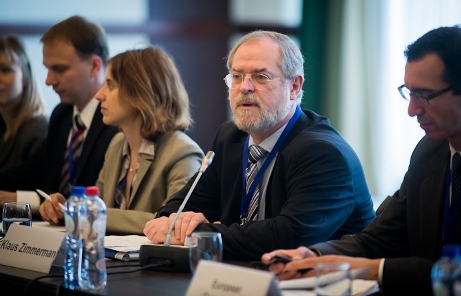|
IN THE SPOTLIGHT |
Eastern Partnership Civil Society Forum
|
|
Results of project on migration between EaP countries and EU presented in Brussels
A final seminar concluding the two-year project “Cost and Benefits of Labour Mobility between the EU and the Eastern Partnership Partner Countries” was organised in Brussels on 25 June 2013 gathering representatives from all EaP countries and the EU member states taking part in the study as well as representatives from civil society and academia. The first panel of the seminar “Migration from the Eastern Partnership Countries and Policy Conclusions” presented the characteristics of EU-EaP migration and its important role in facilitating economic restructuring. The recommendations stemming from the panel were to increase institutional coordination and to incorporate migration issues in national strategies and sectoral action plans. The second panel “EaP workers in EU Labour Markets: Unleashing potential for mutual gains” focused on sharing the experience with migration from EaP countries by Sweden and Poland. While the Swedish side emphasized the inefficiency of schemes and quotas and pointed to the fact that the market is more efficient in allocating resources, Poland shared the example of a system of certificates which produces good results in the country. The third panel “Labour Migration from the EaP: The Potential for Mutual Gains” underlined the large benefits resulting from labour migration for both – migrants themselves and the socio-economic development of their countries. Also the need for implementing adequate labour migration policies in the EaP countries and implementing a single permit initiative on the EU level in order to improve social security for labour migrants. The final recommendations of the seminar were to provide information and support as well as eventual settlement or re-integration of migrants. A comprehensive approach to the policy sphere of migration is needed and not only a narrowed approach to a few areas like border control. Although full liberalisation is unlikely, a gradual liberalisation of migration policies could address many of the concerns mentioned during the seminar. For more information on the project see here. |
Project funded by the European Union
![]()








